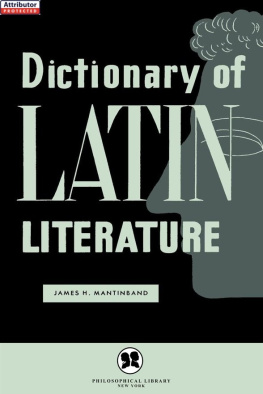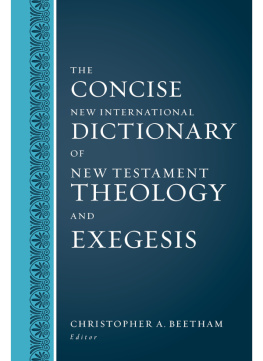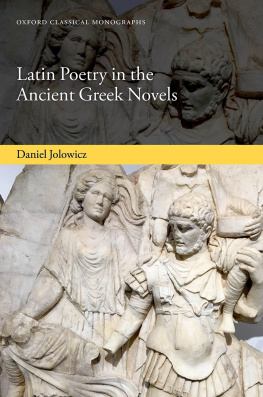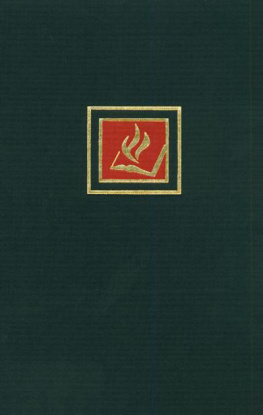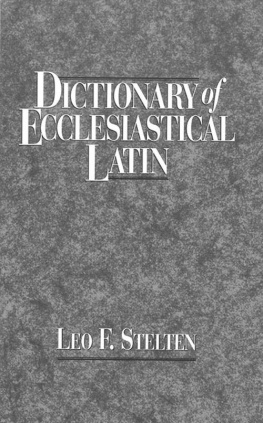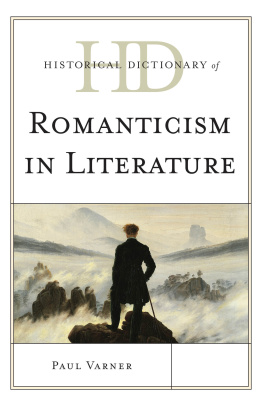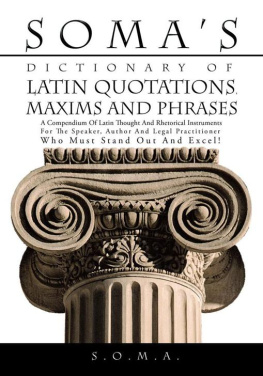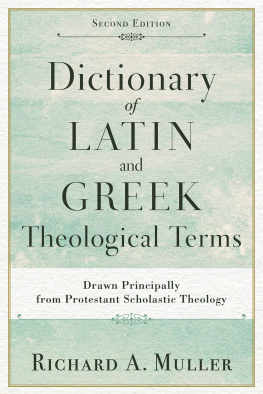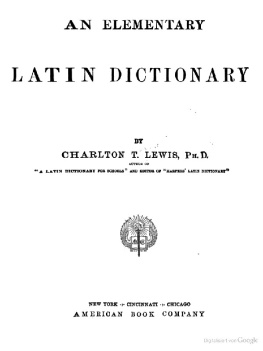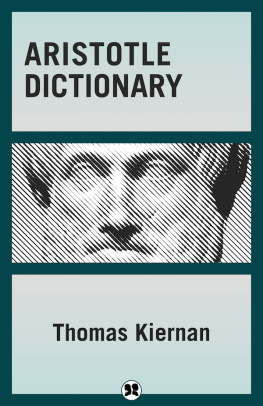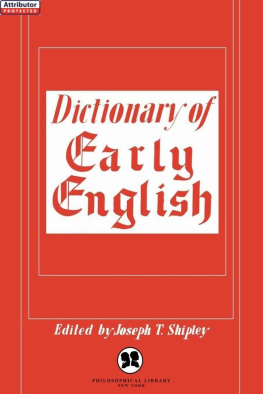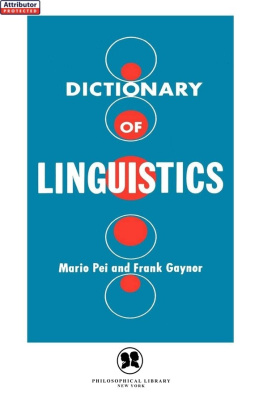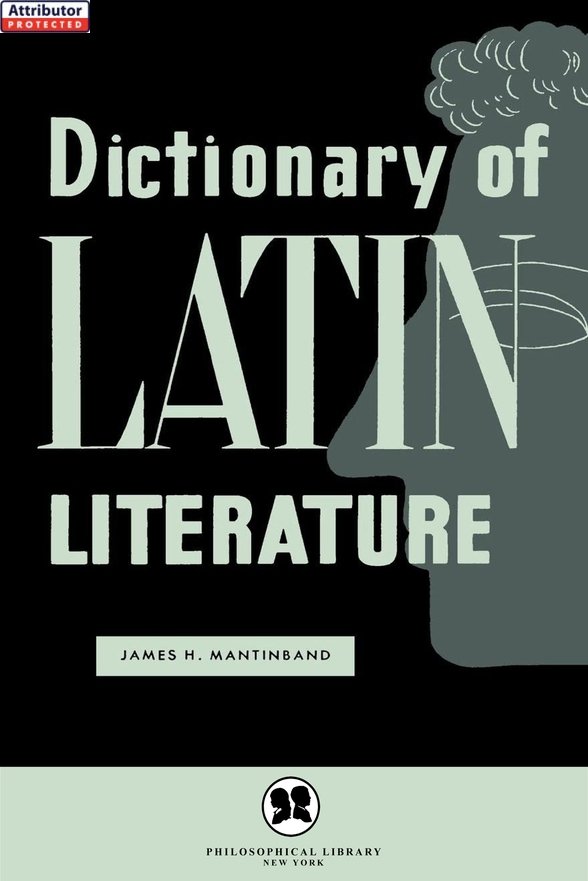REFERENCES
The Oxford Classical Dictionary [OCD] (Oxford, 1949)
Literary History of Rome from the Origins to the Close of the Golden Age, J. Wight Duff (Revised Ed., Barnes & Noble, New York, 1953)
Literary History of Rome in the Silver Age, J. Wight Duff (London, 1927)
Histoire de la Littrature latine chrtienne, Labriolle (Paris, 1947)
Founders of the Middle Ages, Rand (Harvard, 1928)
The Wandering Scholars, Waddell (London, 1949)
Gateway to the Middle Ages, Duckett (New York, 1938)
European Literature and the Latin Middle Ages, Curtius (Bollingen Series, 1952)
Geschichte der lateinischen Literatur des Mittelalters, Manitius (Munich, 1911, 1923, 1931)
History of Christian Latin Poetry from the Beginnings to the Close of the Middle Ages [CLP], Raby (Oxford, 1927)
History of Secular Latin Poetry in the Middle Ages [SLP], Raby (Oxford, 1934)
Where a name (i.e., Waddell, Rand, etc.) appears after one of the articles, it should be taken to refer to one of the above works. The Oxford Classical Dictionary (OCD) contains the most definitive treatments of classical authors, and in such fields as law, religion, history, mythology, philology, textual criticism, etc., as well as in literature, it is excellent.
ab (a): For titles beginning with this, see under next word.
Abbo of Fleury: b. ca. 950. Scholar of great versatility. Wrote numerous works dealing with church law ( Collectio Canonum), grammar ( Quaestiones Grammaticae ) , logic (De Dialecticis Syllogismis ) , weights and measures ( De Numero Mensura et Pondere ) , history, poetry, astronomy, belles-lettres, chronology, etc. (Manitius)
Abbo of St. Germain: d. 923. Author of an historical epic, Bella Parisiacae Urbis, in two books, to which he added a totally irrelevant third book, presumably to symbolize the Holy Trinity. (Curtius, Raby)
Abelard, Peter: 1079-1142. The details of his life, his tragic love for Heloise, etc. are well known. A great teacher, scholar and critic, of the University of Paris. He made many enemies because of his bitter attacks on the Schoolmen of his day. In philosophy, he was a nominalist (q.v.). Held a famous debate on Universals with his teacher, William of Champeaux. Accused of heresy by Bernard of Clairvaux (q.v.) he became a monk at Cluny. One of the leading spirits of 12th Century Humanism, he wrote letters, hymns, and numerous works of prose and poetry. Sic et Non, his most important work, is an effort to solve discrepancies in Christian theology, by use of dialectics. (Curtius, Waddell, Raby)
Abraham, de: Allegorical work by St. Ambrose (q.v.).
Academicism: Introduced into Rome by Carneades (q.v.) of the New Academy, this school of philosophy became very popular and influenced many Roman authors, notably Cicero. A philosophy of Platonism and scepticism.
Academics: Partially lost work by Cicero, which treats of the theory of knowledge (epistemology). Earlier edition: Prior (Lucullus and Catulus) Academics. Later edition: Posterior Ac. We have the Lucullus from the Prior Academics and Book I, for the most part, of the Posterior. Extremely valuable work for the doctrines of the Academy. (Duff, Golden Age)
Accent: In oldest Latin verse (see Saturnian meter) the accent was probably a stress-accent, as it is in English. In most of the Classical period, however, the accent was quantitative. At the end of the classical period, the trend seems to be toward a stress-accent again. The Pervigilium Veneris (q.v.) and the Christian hymns demonstrate this trend. (OCD)
Accentibus, de: Lost work on accents by Censorinus (q.v.).
Accius: (Attius) 170-86 B.C. An early Roman tragedian, his work survives only in fragments. An Umbrian by birth. Cicero knew him. We have 45 titles and about 700 lines of fragments. Among the titles are the tragedies Andromeda, Atreus, Meleager, Philoctetes, Armorum Iudicium, the historical plays (praetextae) Brutus and Decius, a work called Didascalica, on Greek and Roman poetry, one on agriculture ( Praxidica ), and others. Accius took a great interest in the reform of language, doubling vowels to indicate length, etc. Noted for his lofty language, he was imitated by Virgil. The famous oderint dum metuant is from his Atreus. (Duff, Golden Age, OCD)
Acerbus Morena: See Otto Morena.
Achilleid: Unfinished epic by Statius (q.v.). We possess about 1100 lines. Cut short by his death. It is impossible to tell how he meant to continue it, what incidents would have been included, etc. It has Virgilian echoes, Silver-Latin erudition. Probably would have covered more of the story of Achilles than did Homer. (Duff, Silver Age)
Achilles: Title of a lost play by Livius Andronicus (q.v.).
Acilius, Gaius: Early Roman historian, who wrote in Greek. He was interpreter for the Senate when the three Greek philosophers (Critolaus, Diogenes and Carneades) came to Rome as spokesmen for the major schools of Greek philosophy. (Duff, Golden Age, OCD)
Acosta, Jose de: 1539-1600. Spanish Jesuit. Author of De Natura Novi Orbis.
Acron: (Acro) 2nd Cent. A.D. grammarian, wrote commentaries on Terence and Horace, and perhaps Persius. (OCD)
Acrostics: Poems in which the initial letters of the lines, read from top to bottom, spell one or more words, frequently, the title or authors name. They occur in Ennius, in the prologues of the Plautine plays, and are very popular in late antiquity. See Optatianus, Homerus Latinus, mesostich, telestich. (OCD, Curtius)
Acta Diurna: Daily Gazette of the doings at the Roman court, containing the social and political news of the day, beginning in 59 B.C. Used by Tacitus and Suetonius (qq.v.).
Acta Martyrorum: Stories of the trials and martyrdom of the early Christian martyrs. See Golden Legend, Jacopo da Voragine.
Acta Sanctorum: Records of trials of the early Christian martyrs, published in 69 volumes by Jesuit fathers beginning in the 17th Cent.
Acta Senatus: Official record of the transactions of the Roman Senate; cf. our Congressional Record.
actio: Delivery. One of the five branches of the study of rhetoric (q.v.).
Acts of the Apostles: Long poem dealing with the events of the Gospels, by Arator (q.v.). It is replete with allegory and mysticism.
Adalbero: 10-11th cents. Bishop of Laon, perhaps pupil of Gerbert (q.v.). Wrote poetry on the Trinity, etc.
Adalbert: Teacher of rhetoric in Bologna in the 12th century. Author of a short work, Precepta Dictaminis, and a longer one, De Dictamine.
Adalbold of Utrecht: 10th century. Wrote a commentary on Boethius, a biography of Henry II, letters, and possibly two works on music.
Adalger: 10th century cleric, author of Admonitio ad Nonsvindam, an exhortation to virtue. Adalger may have been bishop of Augsburg. (Manitius)
Adalhard, Life and Miracles of: Erroneously ascribed to one Gerald. A re-editing of Radberts biography, with an appendix on the miracles.
Adam: Author of a poem Contra Feminas (against women), probably a clergyman of the late 11th century. (Manitius)
Adam of Bremen: German canon, teacher and author. Born in Thringen (?), came to Bremen in 1066, and became head of the school under the archbishop Adalbert. He wrote the history of the archbishopric of Hamburg-Bremen from its inception to his own day, adding a poetical epilogue. His style is lively and straightforward, and his purpose seems to be to support the Church against the incursions of the temporal powers. He makes good use of source material, and the chronological accuracy leaves little to be desired. Especially interesting is the emphasis on geography, and the descriptions of Scandinavia, the Baltic, Thule (Iceland), and Winland. His style is modeled on that of Sallust. The work is entitled Gesta Hammaburgensis Ecclesiae Pontificum. (Manitius)

